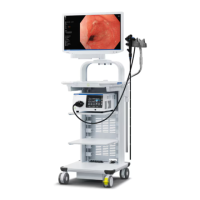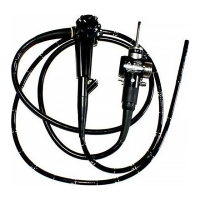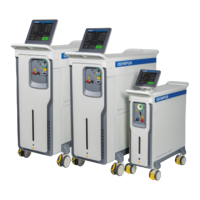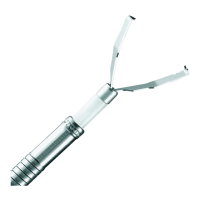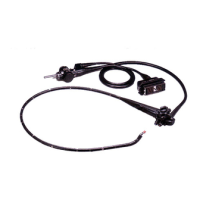106
Chapter 6 Compatible Reprocessing Methods
ULTRASOUND GASTROVIDEOSCOPE GF-UCT180
6.13 Signs of degradation from reprocessing and its
number of times
When reprocessing devices with chemicals, AER and WD as described above,
you will eventually start to see signs of degradation. There are also limits to the
number of times a given reprocessing method can be used on a particular
device.
Improper reprocessing shown below may significantly reduce
the life time of a medical device.
− Reprocessing without observing the instructions of the
manufacturer
− Application of multiple sterilization methods
− Immersion in a chemical for an excessive amount of time
Endoscope
• Reprocessing may cause the following degradations. If any of these
signs of degradation happens, contact Olympus.
− Cracked, peeled or discolored adhesives at either end of
the bending section and at objective lens and light guide
lens
− Cracks in the bending section cover
− Peeling or wrinkling of the insertion tube
− Irregularity of the ultrasound image (e.g., excessively
dark, not clear, or not visible)
Figure 6.4
Deteriorated adhesive
exposing thread
Bending section cover
Cracks in adhesive
Distal end
Deteriorated missing
adhesive around lens
Cracks in bending
section cover
Peeling in
adhesive

